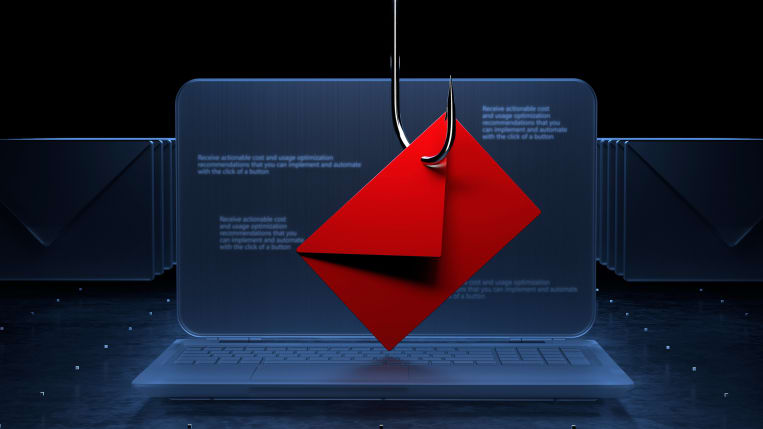
BBB® Investigation: BBB tallies record number of phishing reports as scammers adopt new technologies

(Getty Images)
Don’t take the bait. Phishing scams are on the rise.
Phishing is one of the most common tactics scammers use to steal cash and bank information from their targets.
While the methods vary, any attempt by scammers to convince an individual or company to reveal personal information is a phishing attack. These attacks target not only individuals but also businesses.
Phishing methods take advantage of the myriad communication options available, including emails, texts, calls, and voicemail. At times, they are implanted within legitimate search engine results.
To help consumers and businesses understand the ever-changing world of phishing scams, the Better Business Bureau’s International Investigations Initiative combed through thousands of reports to BBB Scam Tracker, talked with cybersecurity experts, and investigated the newest trends to compile the III’s newest study - BBB® Investigation: BBB tallies record number of reports as scammers adopt new technologies.
The study synthesizes consumer stories and examines tactics used against businesses to show that phishing scams, one of the oldest internet frauds, remain dangerous to individuals and companies of all sizes. It also shows that text-based scams are growing in popularity, and fraudsters have begun to leverage artificial intelligence to craft outreach messages.
This study is intended to give consumers, businesses, news media, researchers and regulatory agencies an in-depth understanding of:
- How these scams work
- How to avoid common scams
- What type of enforcement is helping curb fraud
- Red flags for consumers and businesses
Since the beginning of 2021, BBB received more than 23,000 reports related to phishing. Over 9,000 of those were reported last year, nearly double the record from the previous year.
For example, a man from Ohio told BBB he thought he was visiting Microsoft’s website. After doing so, his computer locked up. A phone number, supposedly for Microsoft, was provided on the screen. The person on the other line said he had been hacked. To help, the man on the phone said he needed remote computer access.
Once it was given, the computer showed the man’s bank account number, which was also supposedly compromised. The scammer pushed him to act quickly and complete a series of transfers from his account into Bitcoin. Over the next few days, the man followed the scammer's instructions and unknowingly sent $40,000.
These elaborate impersonations extend beyond trusted sources. In some cases, fraudsters impersonate an individual in the workplace.
One woman in Massachusetts told BBB she received an email from who she thought was her boss with an invoice attached. He asked her to pay $4,500 by wire transfer in the message. She did so and emailed him to say the task was complete. Her boss immediately called her, saying he never asked her to pay for anything.
“I was confused because we had talked about paying it previously,” The woman said. “I didn’t notice the email address was a junk email address and not my boss.”
Phishing scam red flags - watch out for an email, text message, or call that:
- Claims suspicious activity or fraudulent logins
- Describes unexpected problems with an account
- Tries to confirm financial information
- Requests to click a link to make a payment
- Sends unasked-for coupons
- Generic message paired with the logo of a well-known company
- Uses typo-filled and urgent language
- Offers government refunds
How to report fraud
If you suspect you are the subject of fraud, report your case to:
- To register a complaint or post a review with Better Business Bureau (BBB) - BBB.org
- To file a scam report with BBB - BBB.org/ScamTracker
- Federal Trade Commission (FTC) - ReportFraud.ftc.gov
- Federal Bureau of Investigation (FBI) - https://tips.fbi.gov/home
- Canadian Anti-Fraud Centre (CAFC) - Online or by phone at 1-888-495-8501
- Check your state Attorney General’s website to see if you can file online.
Related News
Still Need Assistance?
Contact Your Local BBB
Your local Better Business Bureau can assist you with finding businesses you can trust. Start With Trust®.
Additional Resources
Central Ohio BBB Business Podcast


